Sarafina: Hello Jenny. Thanks for taking your time to talk about your play in more detail. I think it is such an entertaining and thrilling play, and I’m really excited about the outcome. What is the “Inheritance Game” based on and what inspired you to choose this topic?
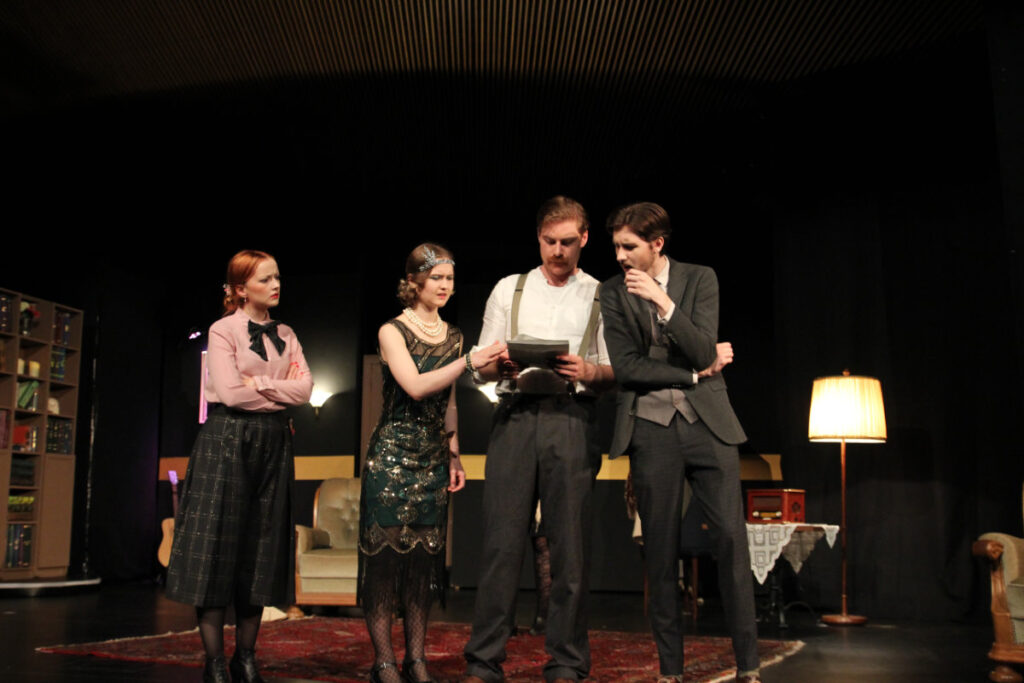
Jenny: I actually write everything that I’ve ever written off of an object. I have this really old radio in my house, and I really love this radio. I had the idea of including the radio on the stage playing music from its time, which was the 1920s and from there I started to form a whole backstory around why this radio is here and what its purpose is and from there this idea of an inheritance of an old man who owns this great estate and his fortune, he has just died.
I’ve also done several escape rooms and I thought they were a lot of fun. Often the theme tends to be in the 20s, 30s, or in the 50s. So I started to think about what an escape room might look like in the 1920s.
I started to think about what an escape room might look like in the 1920s.
Director Jenny Day
The characters all seem so vivacious. Are they fictional or did you take some inspiration from real life? Where does your inspiration come from?
None of the characters are real people. Three of the characters are based on family members. So, my husband’s name is Florian and one of the characters is Gloria. I have two sons named Oliver and Finneas, and we have an Olivia and a Phineas in the play but the characters themselves really have nothing to do with my family members.
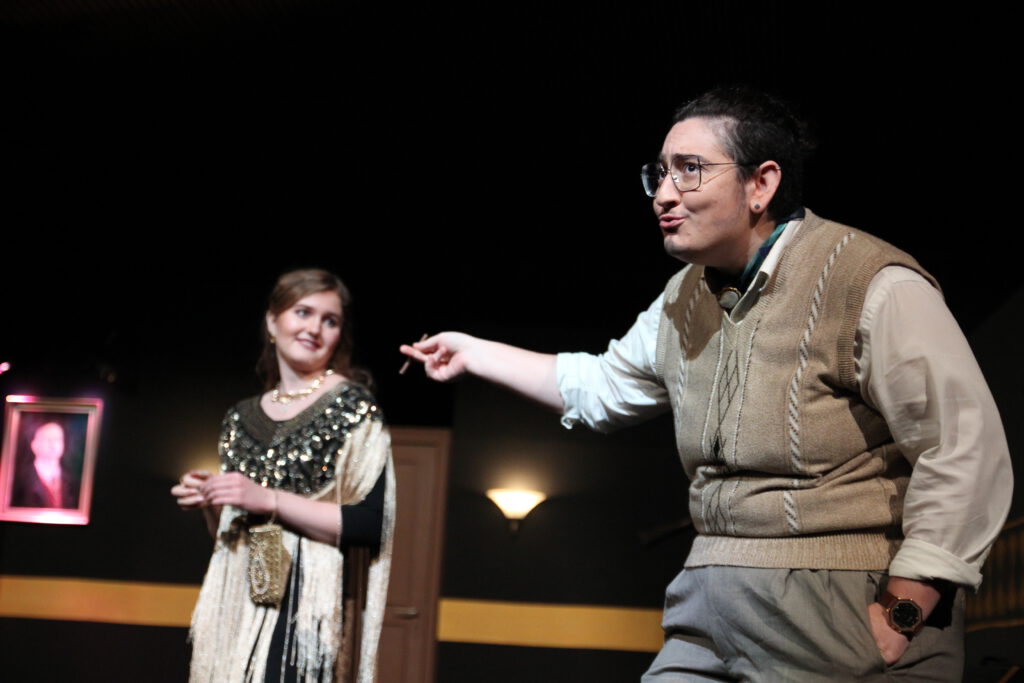
It was just a little easter egg for myself to put their names into the play. I took inspiration from different things that I’ve seen or that I’ve read about and based each of those characters off of a series of characters. None of them are based on one particular person.
In 2011, the first European live escape room opened its doors in Hungary, and since then, a great number of people were fascinated by those games, especially younger people. Can you imagine what makes it so special? Why are so many attracted to those games?
Sometimes we need an escape from that. Escape rooms are little encapsulated stories. It’s an escape, it’s fun.
Director Jenny Day
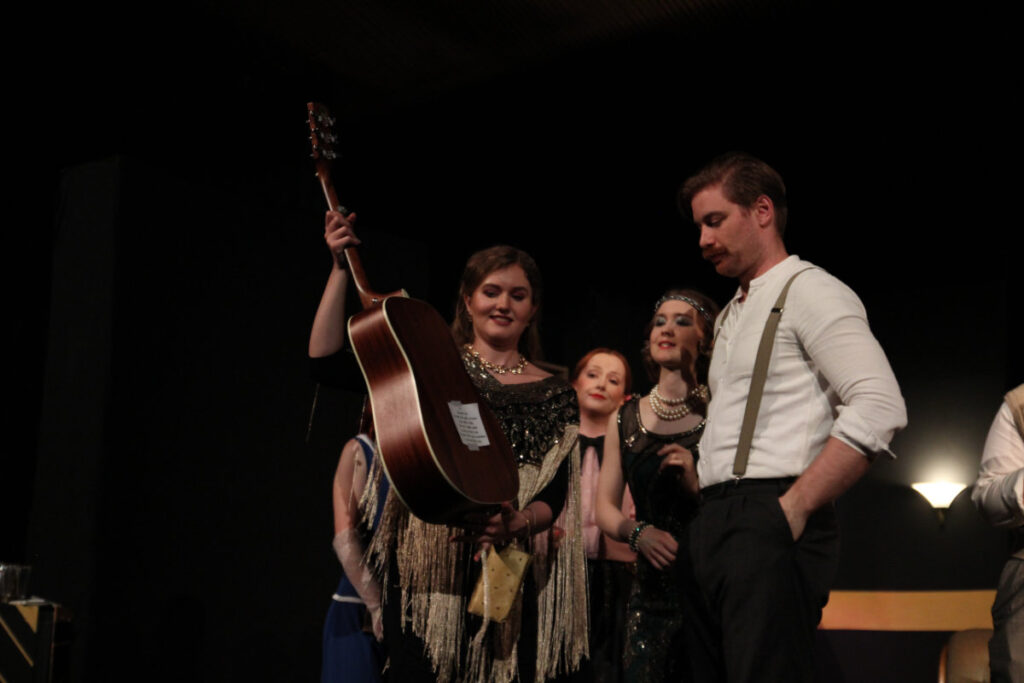
I think a lot of us are struggling at the moment. There’s a lot going on in the world that isn’t really that great. And with social media being that present it is really easy to see what’s going on in every part of the world… and it can really be overwhelming. Sometimes we need an escape from that. Escape rooms are little encapsulated stories. It’s an escape, it’s fun. It’s something you can do to get your mind off of everything that’s going on.
There is this specific scene in Act II in which Olivia and Gloria have time to talk privately. Olivia tries to convince Gloria that Phineas does not deserve to be the heir because of his lifelong status and privilege. Is her critique on Phineas’ behavior a feminist message to the audience?
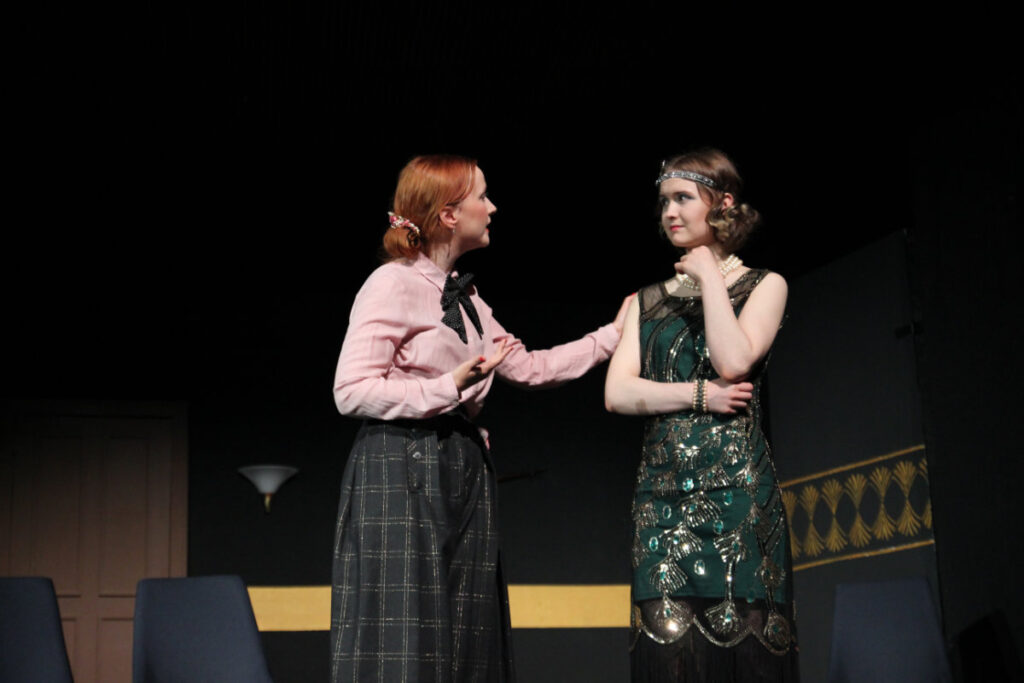
I think so, and I don’t really think that she’s trying to tell Gloria that he doesn’t deserve it. He’s telling Gloria that he doesn’t deserve it any more than anyone else just because he is a man and a relative of the person who has died.
A lot of the characters in the play have come from backgrounds where they’ve had to work their way up in the world. She’s saying “We as women had to work a lot harder in life simply because of the sex that we’re born as” and she’s trying to convey to the audience that this is a time where women didn’t have nearly as many opportunities as men did at that time. They had to work a lot harder to be recognized.
Olivia represents this feminist character who is a little bit of a rebel against the grain. She is an out and proud lesbian and in the 20s this wasn’t illegal but it was something you were othered for. Women in the 20s wearing trousers, being lesbian. She’s trying to tell Gloria that that’s okay and she doesn’t feel sorry for him. She’s worked for all those things. Nobody ever felt sorry for her. So why should she feel sorry for Phineas?
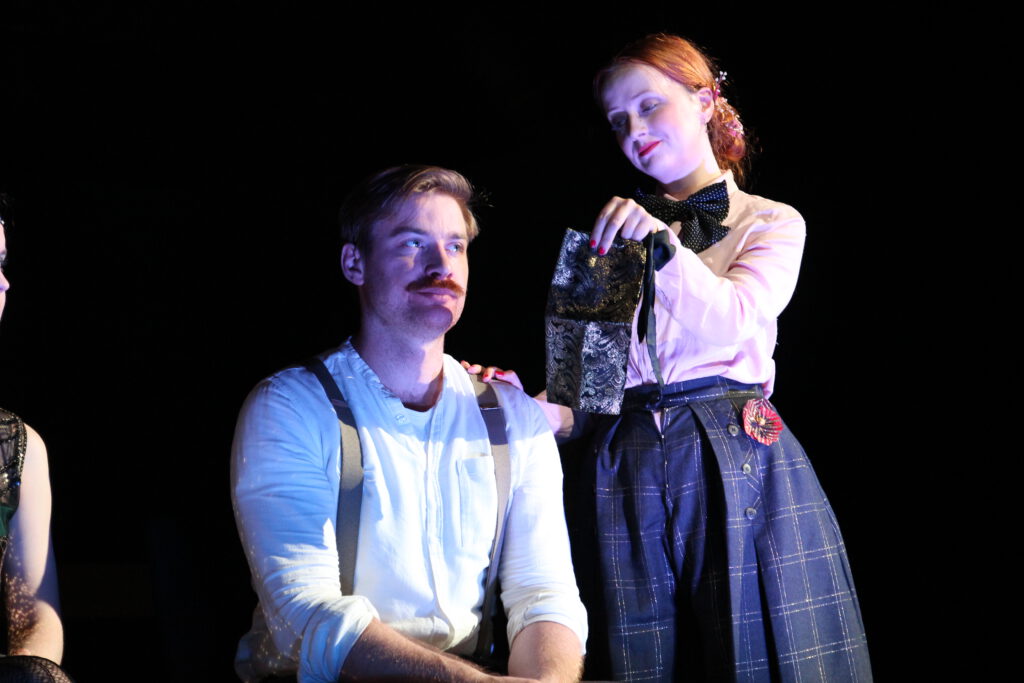
She’s saying “We as women had to work a lot harder in life simply because of the sex that we’re born as” and she’s trying to convey to the audience that this is a time where women didn’t have nearly as many opportunities as men did at that time.
Director Jenny Day
That’s interesting because those two women are in a room alone talking about their concerns. It gives me that notion of a safer space. However, they are locked. Can one interpret this symbolically as the status of a woman in society? Trapped in an environment in which men are in power?
Yeah. I think that scene right at the beginning of act II, they’re having a conversation about what Olivia does as a profession. And this is writing for her magazine Die Freundin. And something that not a lot of people know is that lesbian life, especially in Berlin and in the 20s, was not illegal. This was one of the only spaces where women were allowed to be feminists.
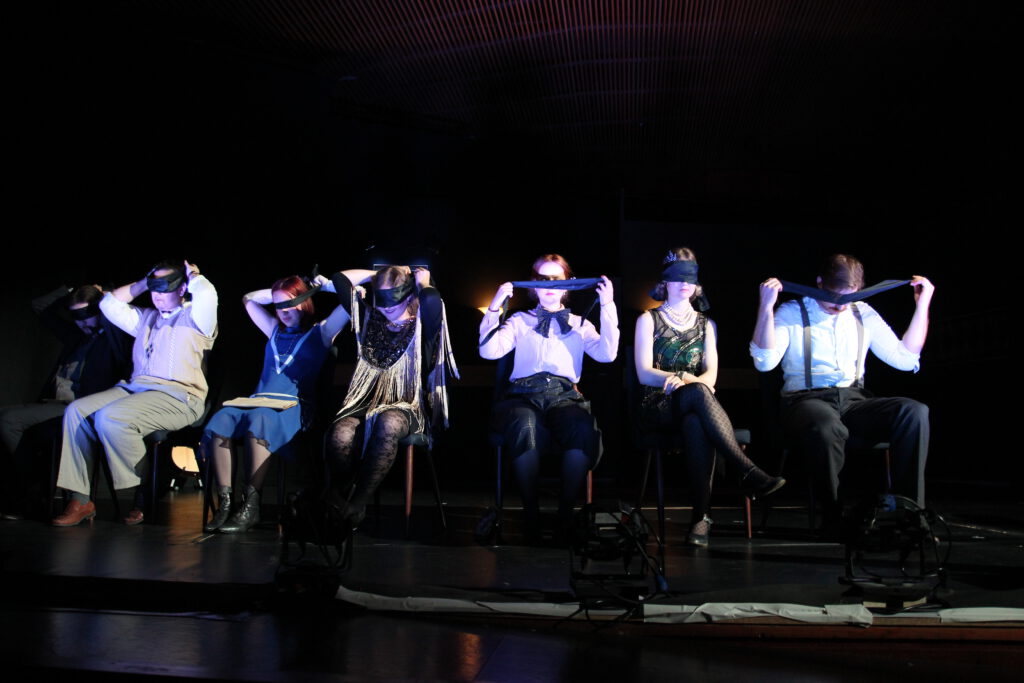
They wrote a publication by themselves for themselves. This was a very small window between 1926 and 1933 until the publishing house was shut down. This was a time where feminism became very common in LGBTQ spaces, and being queer and being a feminist was almost synonymous.
Even though those two queer and feminist women have the opportunity to share openly about those feminist topics they’re still isolated from the rest, not able to fully express this with the other characters in the play.
Why is the relationship between Gloria and Sebastian so present in the play?
I really wanted music to be a focal point in the play. Music is something that I’m really passionate about and the music of the time really tells about where society is at that moment. I focused a lot on music from the twenties.
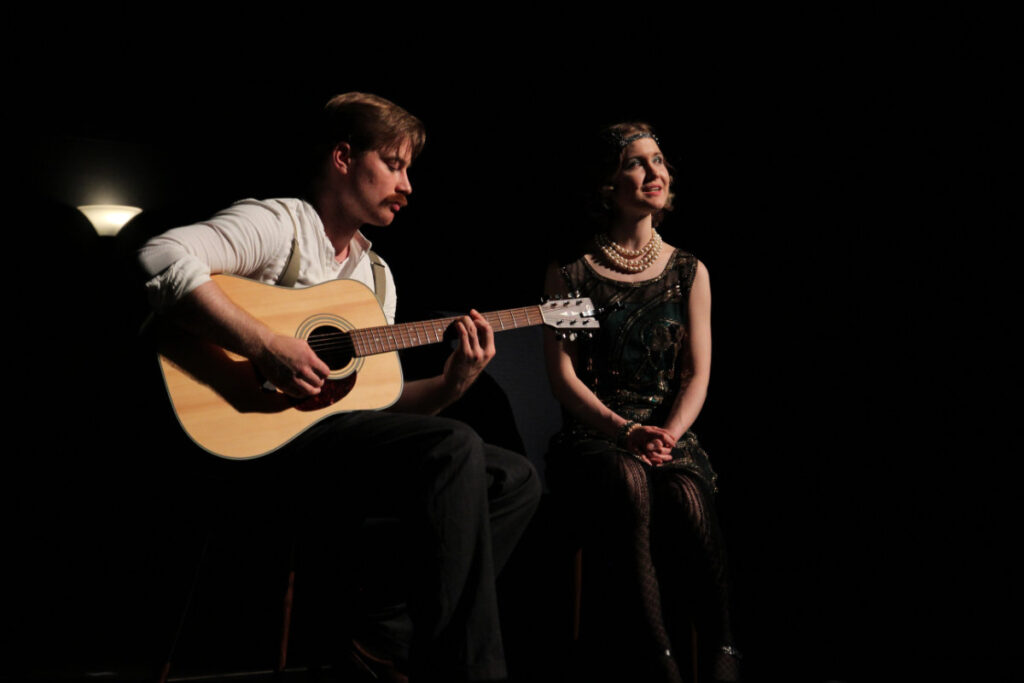
I have these two characters, Sebastian and Gloria, who are both musicians. They were a couple and they separated and there is this moving theme of why are they separated and for me, I think about some iconic music couples like Sonny and Cher, or Elvis and Priscilla. I wanted to have some of that portrayal in the play.
For me it was important that none of them were seen as “the bad guy”. A lot of times when couples break up, there’s always someone seen as a bad guy who has been doing something wrong, but in reality it’s not always that way. Sometimes it just doesn’t work out. You can love someone, as much as anyone could love another person, but sometimes it just doesn’t work, and I wanted this to be in the play as well.
I really wanted music to be a focal point in the play. Music is something that I’m really passionate about and the music of the time really tells about where society is at that moment.
Director Jenny Day
Obviously, the race that Mr. Seymour had invented to pass down his legacy provokes some serious issues among family members and relatives. Was it maybe a kind of revenge against his own nephew Phineas because he has done him wrong?
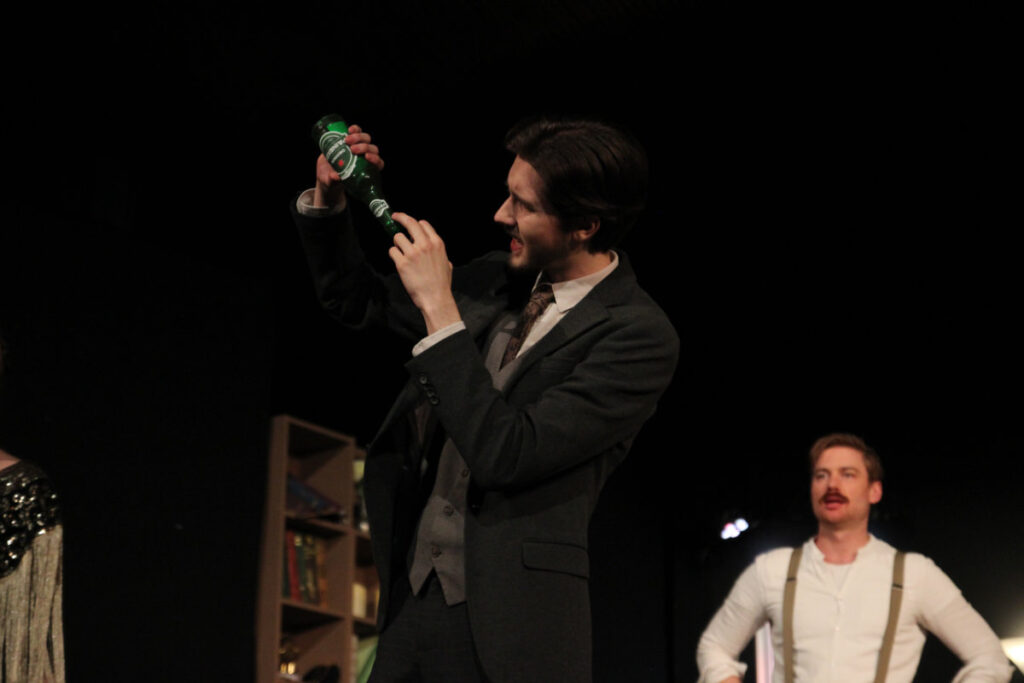
I like to think of Harold Seymour as a god-like character and he has never had anyone that he was really close to. When you’re a god, it’s hard to love someone as an individual. You love all of your people but when you think about one specific person, it’s hard to put a familiar relationship between you, especially when everyone you know loves and worships you.
Harold Seymour never married. He never had any children, never had any real deep connection with one person. Now he has this legacy he wants to pass on but he has never had a connection with a person who he thinks is good enough. He’s worked his way all the way to the top and he wants to make sure that whoever is taking this on has also passed every test. He knows that his nephew has been doing illegal things behind his back, but this does not have any bearing on his life because he sees it as his nephew’s strategy. And he wants to see what it looks like in a game.
Throughout the play, there will be a painting on the wall of Harold. It’s almost as if he is watching the entire time. It’s not a story of revenge, it’s more about analysing and playing with people.
In the 1920s, Black Tuesday meant the end for many wealthy investors and especially for the higher and middle-class. Is the notion of an escape room also linked to the escape from poverty?
Yes. Every single one of my characters was highly invested in the stock market. They were enjoying relative wealth on different levels.
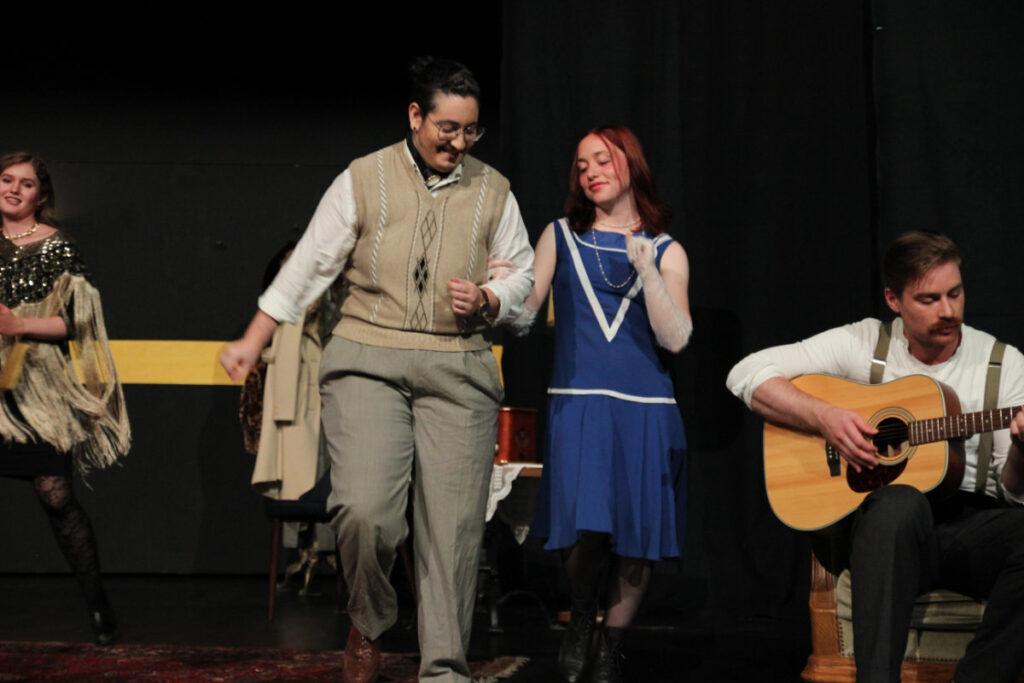
With Black Tuesday, this was completely eliminated for the majority of the upper and middle-classes and even lower classes were affected as well. It went on to cause the great depression that lasted until the 1930s. Everyone was looking for any way, any reason to escape from this huge loss of wealth.
I had the idea of somebody who established wealth and who wasn’t really affected by the stock market. What would happen if they die right before this happens and now have this huge amount of money to pass on to people who’ve just lost everything. What would that look like? This isn’t just an escape room to win a bunch of money, this is an escape room to save you from destitution.
I am really excited to see how each individual in this game is portrayed concerning their appearance and their garments. Will you have a look at the different personalities and then decide in which way they are portrayed?
Jenny: Yeah. I’ve already put together my thoughts of what each character would look like. And I have my detective wearing clothing ten years out of date because he’s a very practical person: he still has his old clothes and they fit him well. They are good for the job he’s doing so why would he keep up with fashion?
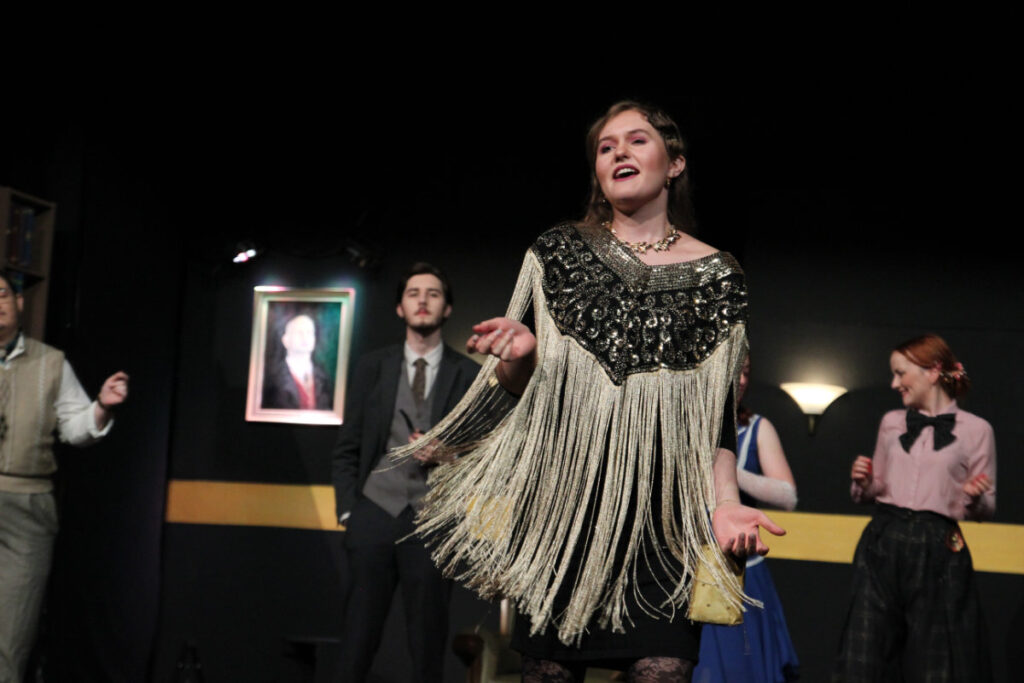
I have another character who keeps up with every new fashion trend and I have another character who enjoys fashion but is rather a practical thinker instead. Another person is wearing something different because he’s home here and he feels comfortable in his environment. We’re really specific about how the costumes portray who that character is, even in a small way.
We’re really specific about how the costumes portray who that character is, even in a small way.
Director Jenny Day
I’m really looking forward to the costumes and how each and everyone is portrayed. Thank you very much for your participation. I have no doubt that this is going to be a huge success.
Photo (c) University Players

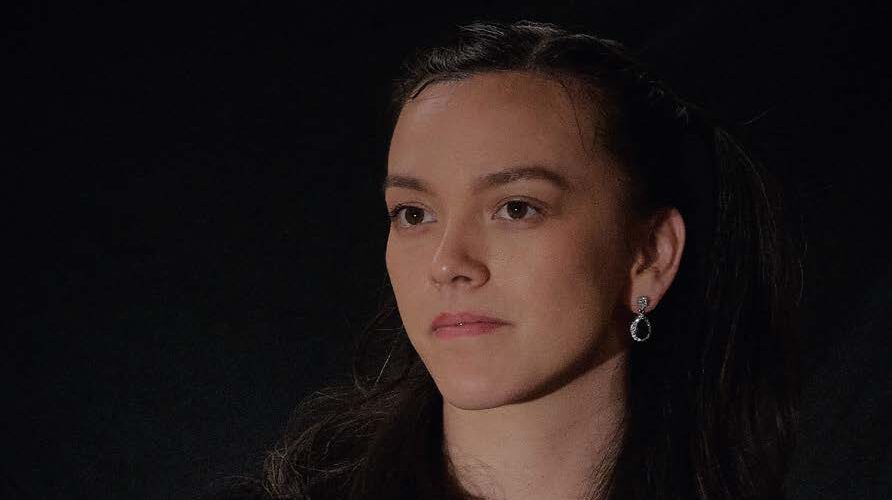
Schreibe einen Kommentar